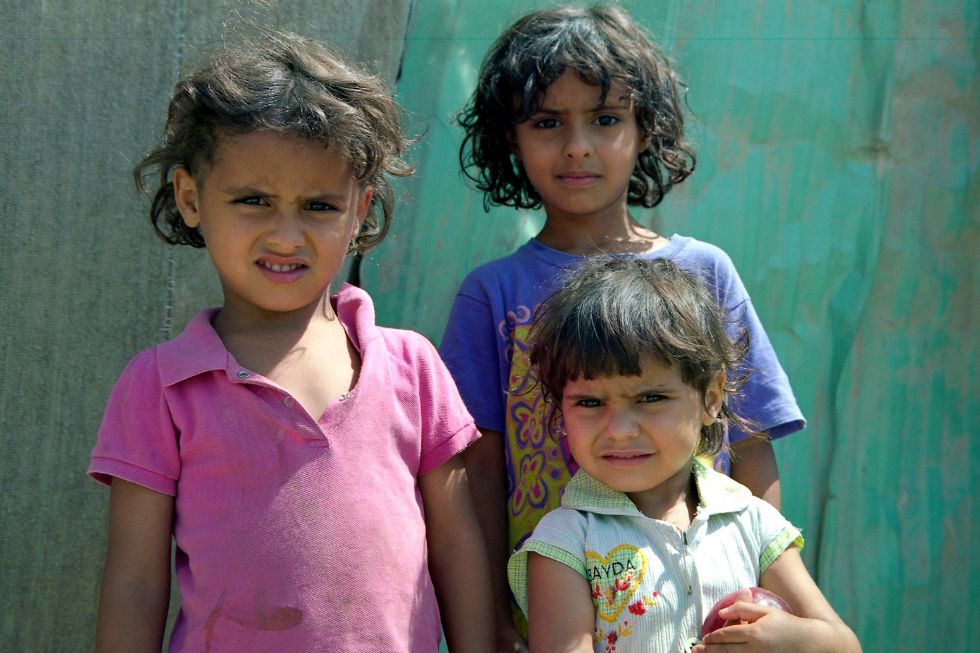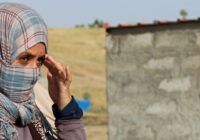In a move that has ignited international alarm Iraq’s parliament introduced a highly controversial amendment on August 4, 2024, that would allow marriage age to be as low as nine. Observers have widely condemned the bill for violating the rights of women and children and for transferring authority on marriage and inheritance matters from state jurisdiction to religious councils. Human Rights Watch has strongly criticized the measure, warning that it represents a significant erosion of children’s rights protection in national law.
The legislative process requires the amendment to undergo two additional readings and a parliamentary debate before a final vote determines its adoption. However, with a parliamentary majority supporting these amendments, the law is at risk of passing despite significant protests and warnings about its societal impacts. Without decisive action, this trend of escalated civil rights violations will deepen societal inequality and compromise Iraq’s standing as a responsible member of the international community.
Basic human rights are at stake
The ramifications of this amendment on Iraq’s social fabric are profound and far-reaching. If enacted, the law threatens to dismantle safeguards for the vulnerable populations of young girls and exacerbate gender inequality. Child marriage, already a persistent issue in the ecosystem of Iraqi society, could become even more pervasive under the proposed system. The psychological and physical toll of child marriage on young girls is well-documented, ranging from disrupted education to heightened risks of domestic violence, sexual abuse, early pregnancy and maternal mortality.
The law would effectively remove the current nationwide legal framework that sets the minimum marriage age at 18. These changes could also legalize unregistered marriages and eliminate penalties for clerics or adults involved in such problematic underage marriage cases. Human Rights warns that the normalization of child marriage could have a ripple effect, undermining related rights such as inheritance and custody arrangements. Furthermore, the legislation undermines existing protections for divorced women regarding housing and financial support.
While existing violations have been happening already, particularly in conservative communities where the practice is culturally normalized, the uniform state law that requires a minimum age of 18 for marriage has at least ensured a consistent legal framework. By allowing sectarian and religious councils to apply more restrictive interpretations without oversight, the proposed amendment threatens to exacerbate existing disparities. Inheritance laws and other legal systems will also undoubtedly be skewed under sectarian governance.
A legal system under threat
The ramifications of this legislative change extend beyond cases of children’s rights violations. By weakening the state’s role in safeguarding personal rights, the amendment signals a retreat from secular state governance and an embrace of sectarianism, further fracturing a society already grappling with deep ethno-religious divides.
Since the 2003 invasion of Iraq, the ascendancy of Shia clerical dominance in Iraqi governance has gradually replaced the secular frameworks that once underpinned certain legal protections, particularly those enshrined in the Personal Status Law of 1959. While the previous dictatorship regime that preceded the 2003 war was defined by its authoritarianism and destructive wars, it paradoxically preserved a degree of equity for women. Its centralized legal system safeguarded women’s rights in marriage, inheritance and family law. In stark contrast, the growing influence of sectarian ideologies has systematically eroded these protections, threatening to undo decades of progress.
For the past seven decades, Iraq’s Personal Status Law has stood as a critical bulwark against gender discrimination and child exploitation. When first enacted in 1959, the law was considered one of the most progressive family codes in the Middle East. The law also incorporates a provision enabling religious authorities to officiate marriages for individuals as young as 15, provided the girl’s father grants consent. Despite its loopholes, the Personal Status Law consolidates legal authority over marriage, divorce, custody and inheritance within a unified framework. This is what helped reduce the dominance of sectarian interpretations, fostering greater equity for women across diverse religious and ethnic communities.
The recently proposed amendment threatens to dismantle these achievements by enabling male guardians and authorities to operate within their own doctrinal principles. Opponents to this bill argue that such fragmentation opens the door to practices that contravene Iraq’s obligations under international human rights treaties, including the Convention on the Elimination of All Forms of Discrimination Against Women (CEDAW).
Furthermore, the amendment risks tarnishing Iraq’s international standing and exacerbates the violations of human rights in the region. As a signatory to numerous human rights conventions, including the International Covenant on Civil and Political Rights (ICCPR), Iraq has supposedly committed to upholding the principles of equality and non-discrimination. Passing this amendment would place Iraq in direct violation of these commitments, inviting rage and condemnation from the international community and potentially jeopardizing foreign aid.
The path forward
As the amendment moves through the legislative process, the likelihood of approval is high. The amendment, spearheaded by the Shiite Coordination Framework (CF), reflects a strategic political maneuver aimed at resonating with conservative constituents. As the parliamentary majority holder, the CF wields significant influence over the legislative process. This enables it to champion the establishment of religious authority favored by conservative factions.
However, we should not ignore those who are speaking out against the proposal. The amendment has received resistance from a broad coalition of civil society groups, human rights organizations and activists. Grassroots organizations, both within and outside Iraq, amplify the voices of those most affected, ensuring that the amendment’s implications remain in the public eye. Women’s rights advocates have been particularly vocal, organizing protests and launching awareness campaigns to draw attention to the amendment’s regressive nature. Prominent Iraqi activists, such as Yanar Mohammed of the Organization of Women’s Freedom in Iraq, have denounced the bill as a betrayal of the nation’s most vulnerable citizens.
International organizations have also joined the ensemble of condemnation. Human rights activists and organizations must continue to express their opposition to such a grave violation. In a strongly worded statement, Human Rights Watch urged Iraqi lawmakers to reject the amendment, calling it a “dangerous precedent” that could erode decades of progress in women’s rights. Meanwhile, global human rights advocacy networks are mobilizing to apply pressure on Iraq’s government, emphasizing the need for legislative reforms that strengthen, rather than undermine, human rights protections.
Iraq stands at a pivotal juncture. The proposed amendment represents more than a legal change; it is a failure of the nation’s justice system and human rights. To pass this amendment is to abandon Iraq’s most vulnerable populations to the whims of sectarian governance.
[Cheyenne Torres edited this piece.]
The views expressed in this article are the author’s own and do not necessarily reflect Fair Observer’s editorial policy.
Support Fair Observer
We rely on your support for our independence, diversity and quality.
For more than 10 years, Fair Observer has been free, fair and independent. No billionaire owns us, no advertisers control us. We are a reader-supported nonprofit. Unlike many other publications, we keep our content free for readers regardless of where they live or whether they can afford to pay. We have no paywalls and no ads.
In the post-truth era of fake news, echo chambers and filter bubbles, we publish a plurality of perspectives from around the world. Anyone can publish with us, but everyone goes through a rigorous editorial process. So, you get fact-checked, well-reasoned content instead of noise.
We publish 2,500+ voices from 90+ countries. We also conduct education and training programs
on subjects ranging from digital media and journalism to writing and critical thinking. This
doesn’t come cheap. Servers, editors, trainers and web developers cost
money.
Please consider supporting us on a regular basis as a recurring donor or a
sustaining member.
Will you support FO’s journalism?
We rely on your support for our independence, diversity and quality.







Comment